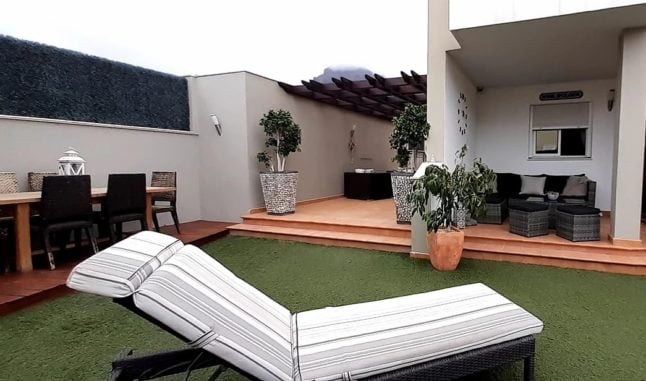The couple, originally from South Shields in the Northeast of England, decided to sell-up and move back to the UK after spending seven years on the island with their son and daughter.
“We came to Tenerife mainly for the climate and we thought it was a great place to bring up small children, which it is and we wouldn’t change it for the world, they have had a great childhood here. They have gone to an amazing school,” she said.
But the family now want to return to the UK to continue the children’s further education and be closer to family.
The couple decided to sell off tickets to their home rather than look for a conventional buyer in a move that is gaining popularity across Spain.
The scheme offers 230,000 tickets for the property, each one for sale for 2.50 (€2.80) which nets the price of €440,000 a little over the estimated asking price if it was sold on the open market.
The property is a three-bed semi detached villa with private garden set within a complex that offers extensive gardens and a communal swimming pool in the Fanabe area of Tenerife.
“I believe my villa is is worth around 430,000 Euros (around £380,00) but I am leaving it fully furnished and practically ready to move into, so I receive the amount of 440,000,” she explained adding that the winner will receive an all expenses paid trip out to Tenerife to sign for the property.
“The extra amount will cover the marketing, advertising and associated purchase costs, plus buyer taxes for the winner.”
“All of the costs will be covered by the raffle plus a 1 percent donation will be made to my chosen charity,” she added.
Tickets went on sale on November 16 and the competition will run until March 16 next year before the winning ticket is drawn.
The raffle is being organised through prizevillas.com CLICK HERE for more details.
READ MORE: What's the latest on property trends and prices in Spain?



 Please whitelist us to continue reading.
Please whitelist us to continue reading.
Member comments